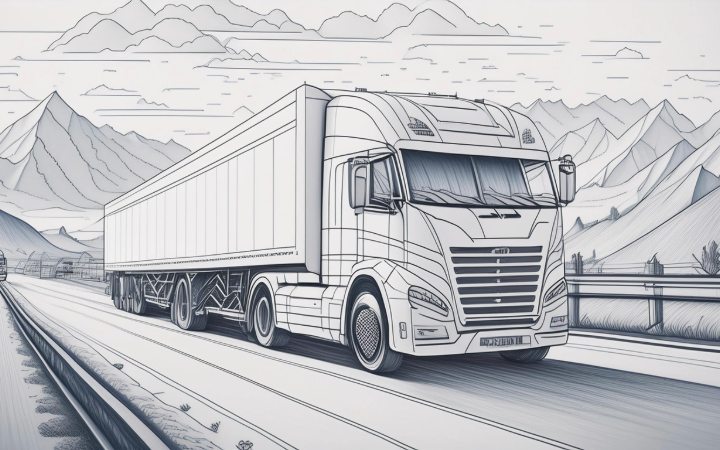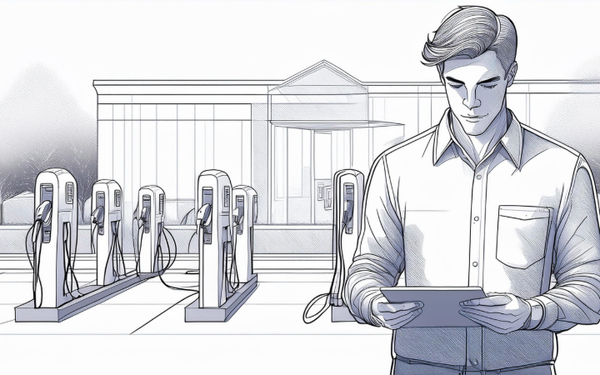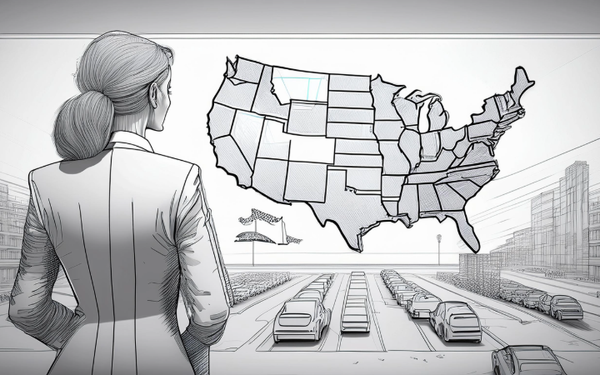The Evolution of Refrigerated Transport Vehicles: Understanding REEFERX
This article delves into what REEFERX means, the progress in refrigerated transport vehicles, and the technologies driving these advancements.

Refrigerated transport vehicles, commonly referred to as "reefers," are essential to the global supply chain, ensuring that perishable goods like food, pharmaceuticals, and chemicals are transported at controlled temperatures to maintain their quality and safety. The term "REEFERX" represents an innovative leap in this industry, integrating advanced technologies to enhance efficiency, reliability, and environmental sustainability in refrigerated transport. This article delves into what REEFERX means, the progress in refrigerated transport vehicles, and the technologies driving these advancements.
What is REEFERX?
REEFERX is an advanced refrigerated transport solution that leverages cutting-edge technology to improve the performance and efficiency of refrigerated vehicles. This concept encompasses several innovations, including:
- Smart Monitoring Systems: REEFERX units are equipped with sophisticated monitoring systems that provide real-time data on temperature, humidity, and other critical parameters. These systems use IoT (Internet of Things) technology to enable remote monitoring and control, ensuring that the cargo remains within specified conditions throughout the journey.
- Energy Efficiency: One of the core goals of REEFERX technology is to enhance energy efficiency. This involves using more efficient cooling units, advanced insulation materials, and renewable energy sources like solar panels to power the refrigeration systems, reducing the carbon footprint of refrigerated transport.
- Enhanced Reliability: By integrating predictive maintenance algorithms and real-time diagnostics, REEFERX vehicles can anticipate potential issues before they lead to breakdowns, thus minimizing downtime and ensuring timely delivery of goods.
- Sustainability: REEFERX technology often includes eco-friendly refrigerants and materials, aligning with global efforts to reduce greenhouse gas emissions and promote sustainability in logistics.
Progress in Refrigerated Transport Vehicles
The refrigerated transport industry has seen significant advancements over the years, driven by the need for more efficient, reliable, and sustainable solutions. Here are some key developments:
- Advanced Refrigeration Units: Modern refrigeration units are more efficient and capable of maintaining precise temperature control. Innovations such as variable speed compressors, advanced fans, and improved heat exchangers contribute to better performance and lower energy consumption.
- Telematics and IoT Integration: The integration of telematics and IoT technology has revolutionized refrigerated transport. These technologies enable real-time tracking of vehicle location, temperature, and other critical data, allowing for proactive management and quick response to any deviations from desired conditions. Companies like Thermo King and Carrier Transicold are leaders in integrating these technologies into their refrigerated units (IEA)(Statzon - Market Insight Platform).
- Battery and Solar-Powered Solutions: To address the environmental impact of refrigerated transport, companies are developing battery-powered refrigeration units and incorporating solar panels to supplement power needs. This reduces reliance on diesel generators, cuts down on emissions, and lowers operating costs (McKinsey & Company).
- Predictive Maintenance: Predictive maintenance uses data analytics and machine learning to predict when a component is likely to fail. This approach allows companies to perform maintenance just in time, reducing the likelihood of unexpected breakdowns and extending the lifespan of refrigeration units (ZapMap).
- Sustainable Refrigerants: Traditional refrigerants like hydrofluorocarbons (HFCs) have high global warming potentials. The industry is shifting towards more sustainable alternatives such as natural refrigerants (e.g., ammonia, CO2) and hydrofluoroolefins (HFOs), which have a much lower environmental impact.
Impact and Future Outlook
The advancements in refrigerated transport technology, epitomized by REEFERX, have profound implications for the global supply chain. These innovations not only enhance the efficiency and reliability of transporting perishable goods but also contribute to broader sustainability goals. By reducing energy consumption and greenhouse gas emissions, REEFERX technology supports global efforts to combat climate change.
Looking forward, the refrigerated transport industry is likely to see continued innovation, with increasing adoption of renewable energy sources, further integration of AI and machine learning for better predictive maintenance, and the development of more advanced materials for insulation and cooling.
Conclusion
REEFERX represents the future of refrigerated transport, combining advanced technology, energy efficiency, and sustainability to meet the demands of modern logistics. As the industry continues to evolve, these innovations will play a crucial role in ensuring that perishable goods are transported safely, efficiently, and with minimal environmental impact. The progress in refrigerated transport vehicles underscores the importance of continued investment in technology and sustainability to support a resilient and eco-friendly supply chain.
For more detailed information, you can refer to:





